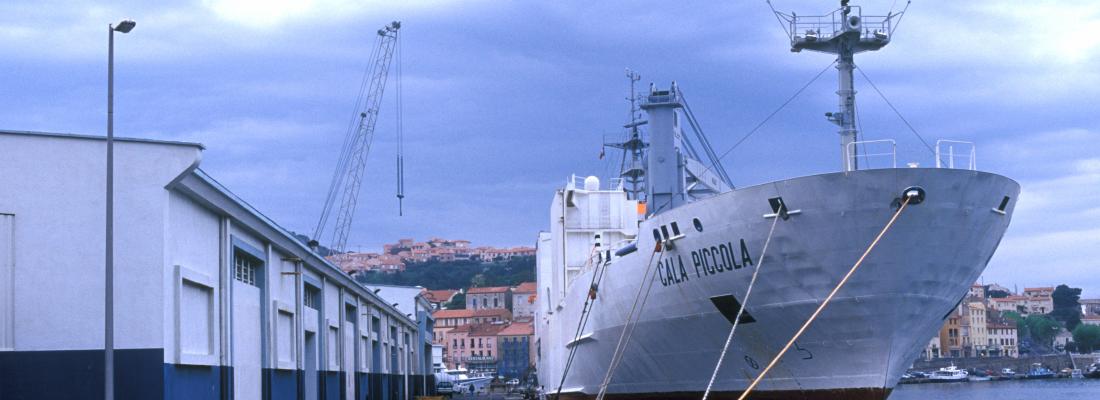Society and regional strategies Reading time 5 min
INRAE researchers inform public debate in France on the proposed EU–Mercosur trade agreement
Published on 06 October 2020

At the end of June 2019, the European Commission announced that in-principle political agreement had been reached on the proposed trade agreement between the European Union (EU) and Mercosur, the South American trade bloc made up of Argentina, Brazil, Paraguay and Uruguay. Entry into force of the agreement remains contingent on ratification by each EU member state, including by the French government.
The trade agreement continues to raise many questions, particularly with regard to its effect on biodiversity and the environment.
Experts to assess the treaty’s effects
To this end, the government of France appointed an expert committee to assess the impact of the trade agreement on sustainable development, public health and land management. The French prime minister’s mission statement for the committee named Stefan Ambec, INRAE research director specialising in environmental economics, as the committee’s chair.
As per its mission statement, the committee will “focus particularly on assessing the treaty’s effects on greenhouse gas emissions, on deforestation and on biodiversity. It will evaluate the implications of the proposed treaty on the ability of member states, and of the EU, to regulate and apply standards to products consumed within the Union”. It will “make recommendations to address the risks it identifies”, and the Committee’s findings will “serve to offer objective insight on issues surrounding the treaty in order to foster public debate and to inform the position of the French government”.
A broad range of experts for a broad range of questions
The Committee’s ten members were drawn from scientific and high-level government backgrounds, with recognised achievements in the fields of the environment, business, agriculture, public health, law, social policy and geopolitics. Of the ten, three were INRAE research directors, including Stefan Ambec, Hervé Guyomard, whose work focuses on modelling and analysing the effects of government policy on agriculture and the environment, and Sébastien Jean, whose work looks at international economics and trade relations in particular.
A three-step process
Once convened, the committee quickly set to task, and enjoyed full independence in its work.
First, it conducted a series of discussions with government agencies, the French General Secretariat for European Affairs and the French Treasury to collect information on the treaty itself and to learn what analyses had already been carried out by these agencies.
This was followed by a fact-finding mission to Brussels, where further discussions were had with the European Commission offices for trade, agriculture, climate action, environment and health, as well as with Sandra Gallina, the chief negotiator of the treaty.
Next came numerous hearings with experts and stakeholders, such as professional organisations, trade unions and non-governmental agencies. The final phase was to write, revise and coordinate the report’s findings and recommendations.
Environmental considerations
In parallel to hearings and discussions, the Committee studied data from agricultural markets and from scientific literature. It also drew on a quantitative impact assessment of the treaty performed in 2019 by a consultancy at the request of the European Commission. This assessment did not, however, take account of changes in land use to meet the demand for agricultural products.
This is notable because forest cover has been shrinking in the Amazon Basin and the Brazilian Cerrado savannah for a number of years, while at the same time resources allocated to government agencies responsible for enforcing forestry regulations have been on the decline.
Consequently, the Committee examined the risk of deforestation associated with the treaty’s increased annual beef quota of 99,000 tonnes in carcass-weight equivalent.
While it was theoretically possible for the increase in beef production to occur without deforestation on existing pasturelands, Stefan Ambec was concerned about what would happen if the additional cattle were raised on pastureland converted from forests.
To determine the risk of deforestation, the pastureland that would be required to support the increase in beef production was calculated, and found to be 700,000 hectares. The resulting greenhouse gas emissions would effectively increase the treaty’s carbon footprint. Without deforestation, the treaty’s overall outcome is positive when weighing the climate costs against the economic gains. However, when the risk of deforestation is added to the equation, the opposite is true. The net balance between the economic gains and the climate costs would be negative.
Fostering public discourse
After completing its research, the committee produced a report containing numerous recommendations and proposals, which Mr Ambec recently delivered to the French prime minister.
Informing public policymaking with personal expertise
“It was a valuable opportunity to support public policymaking, given that the report was grounded in scientific expertise,” says Mr Ambec. “For researchers, and for us at INRAE, it is a way to serve policymaking that puts our expertise at the forefront.”
